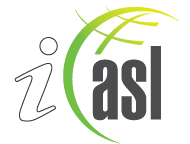

|
|
IASL Research Abstracts: 143
Findings: The use of narrative inquiry, in the form of online journaling of critical events, in school library education courses facilitated course delivery and assessment. The method provided students with a means of bridging coursework and daily careers. Identification and response to critical events aided the instructor with course development.
Abstract: In an effort to study assessment as an element in the scholarship of teaching, the investigator incorporated narrative inquiry into two courses. A content-analysis matrix of student reflections was developed to capture choice of topic, source of conflict/programme, interaction with information/situation, and demographic information. Electronic journaling enabled students to self-assess areas for improvement and to assess peers¹ situations and problem-solving approaches. Journals helped instructors to assess students' areas of concern; how students solved critical issues; and the degree to which course content dealt with the critical events. The activity also fostered a sense of a community and helped link academic coursework and field experience. See:
Farmer, L. (2004). Narrative inquiry as an assessment tool: A course case study. In P. Moore, E. Howe, R. Lonsdale, R. McChaon & D. Singh (Eds). IASL Reports: From Aesop to e-book: The story goes on (pp. 29-38). Erie, PA: International Association of School Librarianship.
Subject Categories: 4
